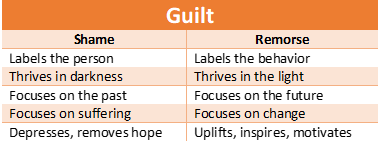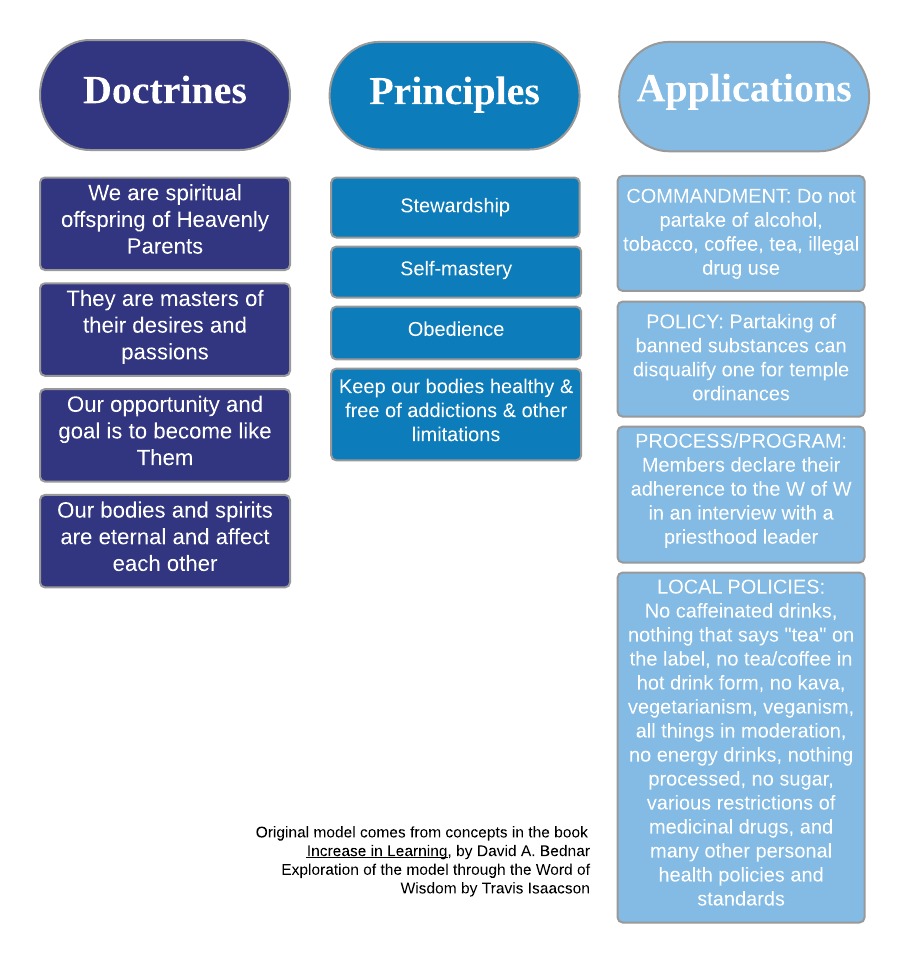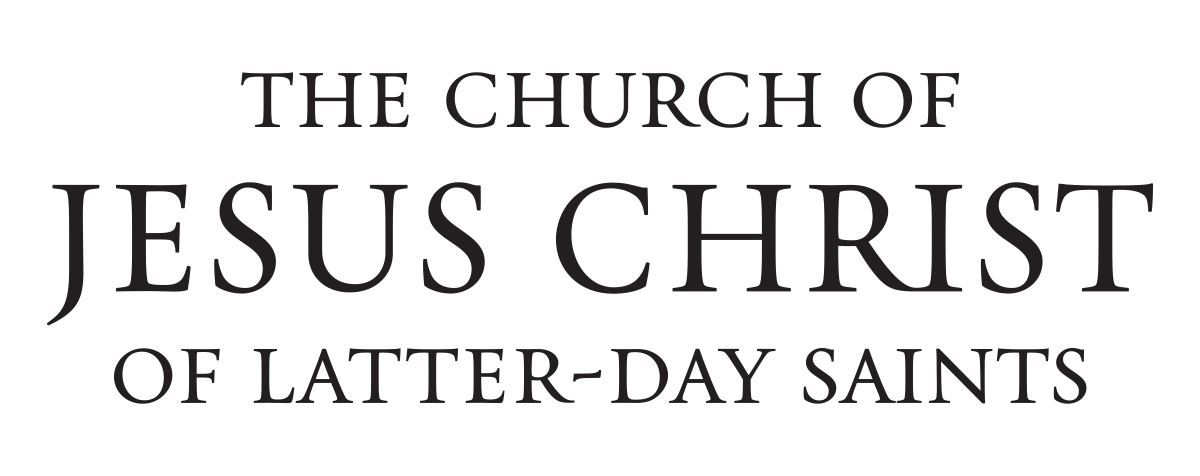I like to study these images and quotes as the Sacrament is being passed in our congregation.
—curation, organization, citation still in process—

“One can be present at sacrament meeting but not really worship; the physical body can be there, while the mind and heart are elsewhere. … In church we can join in singing the hymns while being without a song in our hearts. We can take the sacrament with hand and mouth yet not be taken in mind, at least sometimes, to Gethsemane and Calvary”
-Elder Neal A. Maxwell, Men and Women of Christ, pp. 6-7
A perfect time to ask, “What lack I yet?” is when we take the sacrament. The Apostle Paul taught that this is a time for each of us to examine ourselves. In this reverent atmosphere, as our thoughts are turned heavenward, the Lord can gently tell us what we need to work on next.
-Elder Larry R. Lawrence, “What Lack I Yet?”

During the sacrament, which I call the heart of the Sabbath, I have found that after I pray for forgiveness of sins, it is instructive for me to ask Heavenly Father, “Father, is there more?” When we are yielded and still, our minds can be directed to something more we may need to change—something that is limiting our capacity to receive spiritual guidance or even healing and help.
-Neill F. Marriott, Yielding Our Hearts to God

To make a covenant with the Lord to always keep His commandments is a serious obligation, and to renew that covenant by partaking of the sacrament is equally serious. The solemn moments of thought while the sacrament is being served have great significance. They are moments of self-examination, introspection, self-discernment—a time to reflect and to resolve.
-Howard W. Hunter, The Sacrament of the Lord’s Supper

Each member of the Church bears responsibility for the spiritual enrichment that can come from a sacrament meeting. Each should sing with a grateful heart and respond with an audible “amen” at the conclusion of a prayer or a testimony. We personally ponder the Atonement of Jesus Christ. We reflect upon the significance of His suffering at Gethsemane and His Crucifixion on Calvary. At this time, each of us is to “examine himself” (1 Cor. 11:28) and reflect upon personal covenants made with the Lord. At this time, we meditate upon the sacred things of God.
Gratefully, I thank the Lord for the sacrament meeting and all that it has meant in my life. It has repeatedly rekindled my faith and allowed me to renew my covenants from week to week, helping Sister Nelson and me to live and rear our family in the glorious light of the gospel.
-Elder Russell M. Nelson, Worshiping at Sacrament Meeting

A group of young women once asked me, “What do you wish you had known when you were our age?” If I were to answer that question now, I would include this thought: “I wish when I was your age I had understood the significance of the sacrament better than I did. I wish I had understood the sacrament in the way that Elder Jeffrey R. Holland described. He said, ‘One of the invitations inherent in the sacramental ordinance is that it be a truly spiritual experience, a holy communion, a renewal for the soul.’”
Cheryl A. Esplin, The Sacrament—a Renewal for the Soul
“The Atonement is not a doctrine that lends itself to some singular approach, like a universal formula. It must be felt, not just “figured”; internalized, not just analyzed. The pursuit of this doctrine requires the total person, for the Atonement of Jesus Christ is the most supernal, mind-expanding, passionate doctrine this world or universe will ever know.”
-Tad Callister, The Infinite Atonement

As the Apostle Paul wrote, we were “bought with a price” (1 Cor. 6:20). What an expensive price and what a merciful purchase!
That is why every ordinance of the gospel focuses in one way or another on the atonement of the Lord Jesus Christ, and surely that is why this particular ordinance with all its symbolism and imagery comes to us more readily and more repeatedly than any other in our life. It comes in what has been called “the most sacred, the most holy, of all the meetings of the Church” (Joseph Fielding Smith, Doctrines of Salvation, comp. Bruce R. McConkie, 3 vols., Salt Lake City: Bookcraft, 1954–56, 2:340).
Perhaps we do not always attach that kind of meaning to our weekly sacramental service. How “sacred” and how “holy” is it? Do we see it as our passover, remembrance of our safety and deliverance and redemption?
With so very much at stake, this ordinance commemorating our escape from the angel of darkness should be taken more seriously than it sometimes is. It should be a powerful, reverent, reflective moment. It should encourage spiritual feelings and impressions. As such it should not be rushed. It is not something to “get over” so that the real purpose of a sacrament meeting can be pursued. This is the real purpose of the meeting. And everything that is said or sung or prayed in those services should be consistent with the grandeur of this sacred ordinance.
-Elder Jeffrey R. Holland, “This Do in Remembrance of Me”
“We apply the Atonement by making covenants in baptism and renewing them week after week and weakness after weakness.”
-Brad Wilcox, The Continuous Atonement

“Because it is broken and torn, each piece of bread is unique, just as the individuals who partake of it are unique. We all have different sins to repent of. We all have different needs to be strengthened through the Atonement of the Lord Jesus Christ…
“Of course, we partake of the bread and the water as symbols of the body and blood of our Lord Jesus Christ… but many who do this may not be conscious that in this ordinance what we take into our mouths is not as important as what we do in our minds.
“As we partake of the symbols of the pierced body and the shed blood of our Savior, we should be doing much more than putting bread and water in our mouths. In the ordinance of the sacrament, our minds should be concentrating on the meaning of His atoning sacrifice and we should be remembering the Lord and consciously renewing our covenants with Him.”
–Dallin H. Oaks

During sacrament meeting—and especially during the sacrament service—we should concentrate on worship and refrain from all other activities, especially from behavior that could interfere with the worship of others. Even a person who slips into quiet slumber does not interfere with others. Sacrament meeting is not a time for reading books or magazines. Young people, it is not a time for whispered conversations on cell phones or for texting persons at other locations. When we partake of the sacrament, we make a sacred covenant that we will always remember the Savior. How sad to see persons obviously violating that covenant in the very meeting where they are making it…
Now I speak particularly to the priesthood holders who officiate in the sacrament. This ordinance should always be performed with reverence and dignity. Priests who offer the prayers in behalf of the congregation should speak the words slowly and distinctly, expressing the terms of the covenants and promised blessings. This is a very sacred act.
The teachers who prepare and the deacons who pass the emblems of the sacrament also perform a very sacred act. I love President Thomas S. Monson’s account of how, as a 12-year-old deacon, he was asked by the bishop to take the sacrament to a bedfast brother who longed for this blessing. “His gratitude overwhelmed me,” President Monson said. “The Spirit of the Lord came over me. I stood on sacred ground” (Inspiring Experiences That Build Faith [1994], 188). All who officiate in this sacred ordinance stand on sacred ground.
Young men who officiate in the ordinance of the sacrament should be worthy. The Lord has said: “Be ye clean that bear the vessels of the Lord” (D&C 38:42). The scriptural warning about partaking of the sacrament unworthily (see 1 Corinthians 11:29; 3 Nephi 18:29) surely applies also to those who officiate in that ordinance. In administering discipline to Church members who have committed serious sins, a bishop can temporarily withdraw the privilege of partaking of the sacrament. That same authority is surely available to withdraw the privilege of officiating in that sacred ordinance.
-Elder Dallin H. Oaks, Sacrament Meeting and the Sacrament

The sacrament is the third ordinance necessary to obtain access to the power of godliness. That we might more fully keep ourselves unspotted from the world, we are commanded to go to the house of prayer and offer up our sacraments upon the Lord’s holy day. Please consider that the emblems of the Lord’s body and blood, the bread and the water, are both blessed and sanctified. “O God, the Eternal Father, we ask thee in the name of thy Son, Jesus Christ, to bless and sanctify this bread [or this water] to the souls of all those who partake [or drink] of it.” To sanctify is to make pure and holy. The sacramental emblems are sanctified in remembrance of Christ’s purity, of our total dependence upon His Atonement, and of our responsibility to so honor our ordinances and covenants that we can “stand spotless before [Him] at the last day.”
The ordinance of the sacrament is a holy and repeated invitation to repent sincerely and to be renewed spiritually. The act of partaking of the sacrament, in and of itself, does not remit sins. But as we prepare conscientiously and participate in this holy ordinance with a broken heart and a contrite spirit, then the promise is that we may always have the Spirit of the Lord to be with us. And by the sanctifying power of the Holy Ghost as our constant companion, we can always retain a remission of our sins.
Elder David A. Bednar, Always Retain a Remission of Your Sins

Brothers and sisters, this hour ordained of the Lord is the most sacred hour of our week. By commandment, we gather for the most universally received ordinance in the Church. It is in memory of Him who asked if the cup He was about to drink could pass, only to press on because He knew that for our sake it could not pass. It will help us if we remember that a symbol of that cup is slowly making its way down the row toward us at the hand of an 11- or 12-year-old deacon.
When the sacred hour comes to present our sacrificial gift to the Lord, we do have our own sins and shortcomings to resolve; that’s why we’re there. But we might be more successful in such contrition if we are mindful of the other broken hearts and sorrowing spirits that surround us. Seated not far away are some who may have wept—outwardly or inwardly—through the entire sacramental hymn and the prayers of those priests. Might we silently take note of that and offer our little crust of comfort and our tiny cup of compassion—might we dedicate it to them? or to the weeping, struggling member who is not in the service and, except for some redemptive ministering on our part, won’t be there next week either? or to our brothers and sisters who are not members of the Church at all but are our brothers and sisters? There is no shortage of suffering in this world, inside the Church and out, so look in any direction and you will find someone whose pain seems too heavy to bear and whose heartache seems never to end. One way to “always remember him” would be to join the Great Physician in His never-ending task of lifting the load from those who are burdened and relieving the pain of those who are distraught.
Beloved friends, as we unite across the globe each week in what we hope is an increasingly sacred acknowledgment of Christ’s majestic atoning gift to all humankind, may we bring to the sacramental altar “more tears for his sorrows [and] more pain at his grief.” And then, as we reflect, pray, and covenant anew, may we take from that sacred moment “more patience in suff’ring, … more praise for relief.”
-Elder Jeffrey R. Holland, Behold the Lamb of God

No matter where you stand in your relationship to God, I invite you to draw nearer to Heavenly Father and Jesus Christ, the Ultimate Benefactors and Givers of all that is good. I invite you to attend sacrament meeting each week and partake of the holy emblems of the Savior’s body and blood. I invite you to feel God’s nearness as He is made known to you, as He was to the disciples of old, in the “breaking of [the] bread.”
As you do, I promise that you will feel nearer to God. Natural tendencies to childish whining, disgruntled entitlement, and derisive skepticism will dissipate. Those sentiments will be replaced by feelings of greater love and gratitude for Heavenly Father’s gift of His Son. As we draw closer to God, the enabling power of the Atonement of Jesus Christ will come into our lives. And, as with the disciples on the way to Emmaus, we will find that the Savior has been nearby all along.
-Elder Dale G. Renlund, “That I Might Draw All Men unto Me”
The word take is not passive. It is an action word with multiple definitions. Likewise, our commitment to take upon us the name of Jesus Christ requires action and has multiple dimensions.
For example, one meaning of the word take is to partake of or receive into one’s body, such as when we take a drink. By taking upon ourselves the name of Christ, we commit to take His teachings, His characteristics, and ultimately His love deep into our beings so that they become part of who we are. Thus the importance of President Russell M. Nelson’s invitation to the young adults to “prayerfully and vigorously [seek] to understand what each of [the Savior’s] various titles and names means personally for [them]” and to feast on the words of Christ in the scriptures, especially the Book of Mormon.
Another meaning of the word take is to accept a person in a particular role or embrace the truthfulness of an idea or principle. When we take upon us the name of Christ, we accept Him as our Savior and continually embrace His teachings as the guide for our lives. In every meaningful decision we make, we can take His gospel to be true and obediently live it with all of our heart, might, mind, and strength.
The word take can also mean to align oneself with a name or a cause. Most of us have had the experience of taking on responsibility at work or taking up a cause or a movement. When we take upon ourselves the name of Christ, we take upon us the responsibilities of a true disciple, we advocate His cause, and we “stand as witnesses of [Him] at all times and in all things, and in all places that [we] may be in.” President Nelson has called upon “every young woman and every young man … to enlist in the youth battalion of the Lord to help gather Israel.” And all of us are grateful to take up the prophetic call to profess the name of His restored Church as revealed by the Savior Himself: The Church of Jesus Christ of Latter-day Saints.
In the process of taking the Savior’s name upon us, we must understand that the cause of Christ and of His Church are one and the same. They cannot be separated. Similarly, our personal discipleship to the Savior and active membership in His Church are also inseparable. If we falter in our commitment to one, our commitment to the other will be diminished, as surely as night follows day.
Some are reluctant to assume the name of Jesus Christ and His cause because they regard it to be unduly narrow, limiting, and confining. In reality, taking upon us the name of Christ is both liberating and enlarging. It awakens the desire we felt when we accepted God’s plan through faith in the Savior. With this desire alive in our hearts, we can discover the real purpose of our divinely given gifts and talents, experience His empowering love, and grow in our concern for the welfare of others. As we take upon us the Savior’s name, we truly lay hold upon every good thing and become like Him.
-Elder Paul B. Pieper, All Must Take upon Them the Name Given of the Father
Elder Dallin H. Oaks has explained that in renewing our baptismal covenants by partaking of the emblems of the sacrament, “we do not witness that we take upon us the name of Jesus Christ. [Rather], we witness that we are willing to do so. (See D&C 20:77.) The fact that we only witness to our willingness suggests that something else must happen before we actually take that sacred name upon us in the [ultimate and] most important sense.” The baptismal covenant clearly contemplates a future event or events and looks forward to the temple.
-Elder David A. Bednar, Honorably Hold a Name and Standing
In these three relatively obvious meanings, we see that we take upon us the name of Christ when we are baptized in his name, when we belong to his Church and profess our belief in him, and when we do the work of his kingdom.
There are other meanings as well, deeper meanings that the more mature members of the Church should understand and ponder as he or she partakes of the sacrament.
It is significant that when we partake of the sacrament we do not witness that we take upon us the name of Jesus Christ. We witness that we are willing to do so. (See D&C 20:77.) The fact that we only witness to our willingness suggests that something else must happen before we actually take that sacred name upon us in the most important sense.
What future event or events could this covenant contemplate? The scriptures suggest two sacred possibilities, one concerning the authority of God, especially as exercised in the temples, and the other—closely related—concerning exaltation in the celestial kingdom.
The name of God is sacred. The Lord’s Prayer begins with the words, “Our Father which art in heaven, Hallowed by thy name.” (Matt. 6:9.) From Sinai came the commandment, “Thou shalt not take the name of the Lord thy God in vain.” (Ex. 20:7, Deut. 5:11.) Latter-day revelation equates this with using the name of God without authority. “Let all men beware how they take my name in their lips,” the Lord declares in a modern revelation, for “many there be who … use the name of the Lord, and use it in vain, having not authority.” (D&C 63:61–62.)
Consistent with these references, many scriptures that refer to “the name of Jesus Christ” are obviously references to the authority of the Savior. This was surely the meaning conveyed when the seventy reported to Jesus that “even the devils are subject unto us through thy name.” (Luke 10:17.) The Doctrine and Covenants employs this same meaning when it describes the Twelve Apostles of this dispensation as “they who shall desire to take upon them my name with full purpose of heart.” (D&C 18:27.) The Twelve are later designated as “special witnesses of the name of Christ in all the world,” and as those who “officiate in the name of the Lord, under the direction of the Presidency of the Church.” (D&C 107:23, 33.)
-Elder Dallin H. Oaks, Taking upon Us the Name of Jesus Christ

Brothers and sisters, the most important event in time and eternity is the Atonement of Jesus Christ. He who accomplished the Atonement has given us the ordinance of the sacrament to help us not only remember but also claim the blessings of this supreme act of grace. Regular and earnest participation in this sacred ordinance helps us continue to embrace and live the doctrine of Christ after baptism and thereby pursue and complete the process of sanctification. Indeed, the ordinance of the sacrament helps us faithfully endure to the end and receive the fulness of the Father in the same way Jesus did, grace for grace.
-Elder James J. Hamula, The Sacrament and the Atonement
“The most important 14 minutes and 25 seconds of the week.”
-Chris Taylor (a friend), during sacrament meeting talk on September 20th, 2015. On this day he clocked how long we spent on the ordinance.
“I am a witness that there is a spirit attending the administration of the sacrament that warms the soul from head to foot; you feel the wounds of the spirit being healed, and the load is lifted. Comfort and happiness come to the soul that is worthy and truly desirous of partaking of this spiritual food”
-Elder Melvin J. Ballard, The Sacramental Covenant
“Conscientiously preparing for and worthily partaking of the sacramental emblems help us to (1) review regularly where we are in turning away from self and toward the Savior, (2) reorient ourselves to the “weightier matters of the law” (Matthew 23:23)—the pearl of great price instead of the jewel box, (3) make necessary course corrections along the strait and narrow path (see 2 Nephi 31:18), and (4) seek appropriately for the blessings and spiritual gifts we need in our lives to continue as we commenced.”
-David A. Bednar, Act in Doctrine, ch 3
The ordinance of the sacrament is one of the greatest influences in our lives to reduce the disparity between what we know and what we do. We are reminded of and renew again each week the pledge of our willingness to take upon ourselves the name of Jesus Christ, to follow Him, to remember Him, to keep His commandments, and to emulate His character. We recommit every time we partake of the bread and the water that we are willing to keep working, striving, repenting, and improving. And when we rely upon His merits, mercy, and grace (see 2 Nephi 2:8), our confidence increases that “in the strength of the Lord [we can] do all things” (Alma 20:4).
-David A. Bednar, Act in Doctrine, ch 3
Studying, pondering, and feasting upon the words of Christ (see 2 Nephi 31:20) as recorded in the holy scriptures will help us to always remember Him. Praying continually (see Alma 62:51; Alma 13:28; Moroni 8:3) helps us to always remember Him. And faithfully acting in His doctrine helps us to always remember Him. Thus, a willingness to take upon ourselves the Savior’s name and to effectively represent Him is related directly to always remembering Him—His character, perfections, and attributes; His mortal mission; His gospel; His commandments; and His promised blessings.
-David A. Bednar, Act in Doctrine, ch 2
Speaking from the perspective of eternity, eternal life is the greatest of all the gifts of God. But narrowing the perspective to this life only, the gift of the Holy Ghost is the greatest gift a mortal can enjoy.
-Elder Bruce R. McConkie, “What Is Meant by ‘The Holy Spirit’?” Instructor, Feb. 1965
“If you have the Holy Ghost with you—and every one ought to have—I can say unto you that there is no greater gift, there is no greater blessing, there is no greater testimony given to any man on earth. You may have the administration of angels; you may see many miracles; you may see many wonders in the earth; but I claim that the gift of the Holy Ghost is the greatest gift that can be bestowed upon man”
-President Wilford Woodruff, Teachings of Presidents of the Church: Wilford Woodruff
Many years ago Elder Orson F. Whitney had an experience as a young 21-year-old missionary that can apply to our experience as we approach the sacrament each week. Young Elder Whitney had been lax in his missionary calling. He had a dream in which he witnessed the Savior in the Garden of Gethsemane. In part he described his vision:
“As [the Savior] prayed the tears streamed down His face, which was towards me. I was so moved at the sight that I also wept, out of pure sympathy. My whole heart went out to Him; I loved Him with all my soul, and longed to be with Him as I longed for nothing else.
“Presently He arose and walked to where those Apostles were kneeling-fast asleep! He shook them gently, awoke them, and in a tone of tender reproach, untinctured by the least show of anger or impatience, asked them plaintively if they could not watch with Him one hour. There He was, with the awful weight of the world’s sin upon His shoulders, with the pangs of every man, woman and child shooting through His sensitive soul — and they could not watch with Him one poor hour!
“Returning to His place, He offered up the same prayer as before; then went back and again found them sleeping. Again He awoke them, re-admonished them, and once more returned and prayed. Three times this occurred, until I was perfectly familiar with His appearance — face, form and movements. … All at once the circumstance seemed to change, the scene remaining just the same. Instead of before, it was after the crucifixion, and the Savior, with the three Apostles now stood together in a group at my left. They were about to depart and ascend to Heaven. I could endure it no longer. I ran from behind the tree, fell at His feet, clasped Him around the knees, and begged Him to take me with Him.
“I shall never forget the kind and gentle manner in which He stooped, raised me up, and embraced me. It was so vivid, so real. I felt the very warmth of His body, as He held me in His arms and said in tenderest tones: ‘No my son; these have finished their work; they can go with me; but you must stay and finish yours.’ Still I clung to Him. Gazing up into His face — for He was taller than I — I besought Him fervently: ‘Well, promise me that I will come to you at the last.’ Smiling sweetly, He said: ‘That will depend entirely upon yourself.’ I awoke with a sob in my throat, and it was morning. … I saw the moral clearly. I have never thought of being an Apostle, nor of holding any other office in the Church, and it did not occur to me then. Yet I knew that these sleeping Apostles meant me. I was asleep at my post — as any man is who, having been divinely appointed to do one thing, does another.
“But from that hour, all was changed. I never was the same man again.” (Through Memory’s Halls, pp. 82-83.)
What does it mean that the Aaronic Priesthood holds “the key of the ministering of angels” and of the “gospel of repentance and of baptism, and the remission of sins”? The meaning is found in the ordinance of baptism and in the sacrament. Baptism is for the remission of sins, and the sacrament is a renewal of the covenants and blessings of baptism. Both should be preceded by repentance. When we keep the covenants made in these ordinances, we are promised that we will always have His Spirit to be with us. The ministering of angels is one of the manifestations of that Spirit.
…
How grateful we are that the Lord has provided a process for each baptized member of His Church to be periodically cleansed from the soil of sin. The sacrament is an essential part of that process.
We are commanded to repent of our sins and to come to the Lord with a brokenheart and a contrite spirit and partake of the sacrament in compliance with its covenants. When we renew our baptismal covenants in this way, the Lord renews the cleansing effect of our baptism. In this way we are made clean and can always have His Spirit to be with us. The importance of this is evident in the Lord’s commandment that we partake of the sacrament each week (see D&C 59:8–9).
We cannot overstate the importance of the Aaronic Priesthood in this. All of these vital steps pertaining to the remission of sins are performed through the saving ordinance of baptism and the renewing ordinance of the sacrament. Both of these ordinances are officiated by holders of the Aaronic Priesthood under the direction of the bishopric, who exercise the keys of the gospel of repentance and of baptism and the remission of sins.
III.
In a closely related way, these ordinances of the Aaronic Priesthood are also vital to the ministering of angels.
“The word ‘angel’ is used in the scriptures for any heavenly being bearing God’s message” (George Q. Cannon, Gospel Truth, sel. Jerreld L. Newquist [1987], 54). The scriptures recite numerous instances where an angel appeared personally. Angelic appearances to Zacharias and Mary (see Luke 1) and to King Benjamin and Nephi, the grandson of Helaman (see Mosiah 3:2; 3 Ne. 7:17–18) are only a few examples. When I was young, I thought such personal appearances were the only meaning of the ministering of angels. As a young holder of the Aaronic Priesthood, I did not think I would see an angel, and I wondered what such appearances had to do with the Aaronic Priesthood.
But the ministering of angels can also be unseen. Angelic messages can be delivered by a voice or merely by thoughts or feelings communicated to the mind. President John Taylor described “the action of the angels, or messengers of God, upon our minds, so that the heart can conceive … revelations from the eternal world” (Gospel Kingdom, sel. G. Homer Durham [1987], 31).
Nephi described three manifestations of the ministering of angels when he reminded his rebellious brothers that (1) they had “seen an angel,” (2) they had “heard his voice from time to time,” and (3) also that an angel had “spoken unto [them] in a still small voice” though they were “past feeling” and “could not feel his words” (1 Ne. 17:45). The scriptures contain many other statements that angels are sent to teach the gospel and bring men to Christ (see Heb. 1:14; Alma 39:19; Moro. 7:25, 29, 31–32; D&C 20:35). Most angelic communications are felt or heard rather than seen.
How does the Aaronic Priesthood hold the key to the ministering of angels? The answer is the same as for the Spirit of the Lord.
In general, the blessings of spiritual companionship and communication are only available to those who are clean. As explained earlier, through the Aaronic Priesthood ordinances of baptism and the sacrament, we are cleansed of our sins and promised that if we keep our covenants we will always have His Spirit to be with us. I believe that promise not only refers to the Holy Ghost but also to the ministering of angels, for “angels speak by the power of the Holy Ghost; wherefore, they speak the words of Christ” (2 Ne. 32:3). So it is that those who hold the Aaronic Priesthood open the door for all Church members who worthily partake of the sacrament to enjoy the companionship of the Spirit of the Lord and the ministering of angels.
Dallin H. Oaks, The Aaronic Priesthood and the Sacrament
